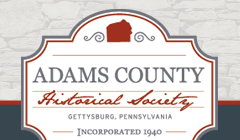Document Type
Article
Abstract
Americans love anniversaries. The fiftieth anniversary of the end of the Second World War has afforded citizens an opportunity to remember with pride the great men and events of a war that saved the world from totalitarian tyranny. Happily, memories of World War II have not been restricted to recalling battlefield heroics or diplomatic intrigues. Across the United States, public libraries and local historical societies have commemorated the Home Front during the war years with exhibits that recapture the texture of life on farms, factories, in classrooms, and at home during what Studs Terkel has labeled "the Good War." These exhibits remind us what we know instinctively: that experiencing wartime is not simply the province of men and women in uniform. Anyone over the age of fifty-five has some vivid memories of America at war from 1941-1945. Millions of Americans who never put on a military uniform made their own contributions to the war effort. Their contributions mattered, and so do their memories.
At Gettysburg College, in recognition of this basic truth, students in Historical Methods courses have for several years been interviewing senior citizens about their wartime memories. Perhaps two dozen or more of these interviews were conducted with Adams countians, across a broad spectrum of experience. Among the interview subjects were farmers, housewives, nurses, schoolteachers, businessmen, college students, and seminarians. One subject, a conscientious objector, provided a most distinctive perspective on a war that mythology suggests was supported fervently by all Americans.
In fact, most Americans did enthusiastically support the war effort, as testimony from Adams Countians suggests. In the following interview, conducted by Gettysburg College student Jenny Sonnenberg with Francis Coulson, readers will learn some of the ways that average citizens were affected by the war and contributed to a remarkable home-front effort to support the boys overseas. A teacher in a one-room school in the county for much of the war, Mr. Coulson recounts his experiences with rationing and civil defense, and offers a persuasive picture of a populace that was willing to make sacrifices in order to help American soldiers bring the war to a quicker end. It is an important story, not because Francis Coulson's experiences were spectacular, much less unique, but rather, because they were commonplace. As the interview itself suggests, the war years marked a time when Americans had much less materially than they would in the boom times following the war. It was still a time of simple habits and old fashioned values. In bringing to life the experiences of these years and the habits of everyday life, oral histories like those Ms. Sonnenberg conducted with Francis Coulson make an important contribution to local history and can help spark other conversations with individuals who had their own distinctive experiences during the war years. What follows is an edited transcription of a taped interview that is available in its entirety at the Adams County Historical Society Library. [excerpt]
Recommended Citation
Sonnenberg, Jenny
(1996)
"World War II: On the Home Front - M. Francis Coulson Interview,"
Adams County History: Vol. 2, Article 6.
Available at:
https://cupola.gettysburg.edu/ach/vol2/iss1/6
Included in
European History Commons, Military History Commons, Oral History Commons, Social History Commons, United States History Commons
